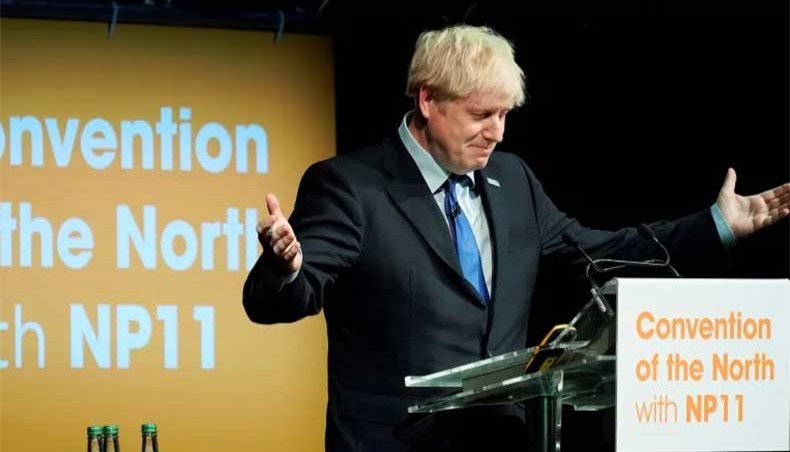UK PM optimistic on Brexit deal

Prime minister Boris Johnson said Friday he was ‘cautiously optimistic’ about striking a Brexit deal ahead of his first face-to-face talks with EU chiefs next week.
Johnson is due to meet European Commission president Jean-Claude Juncker and the EU’s chief Brexit negotiator Michel Barnier in Luxembourg on Monday.
Johnson’s upbeat tone on striking a divorce deal with the European Union in time for Britain’s scheduled October 31 departure date is in marked contrast with the mood music from Brussels.
The British pound gained one percent against the dollar in Friday trading on speculation that the two sides were edging closer to a compromise over the contentious Irish border issue.
But Irish prime minister Leo Varadkar said the gap between London and Brussels remained ‘very wide’.
Johnson said the public deserved to know the latest in the Brexit talks, as he restated his insistence that Britain must leave the EU on October 31, with or without a withdrawal agreement.
‘We’re working incredibly hard to get a deal,’ he said during a visit to Rotherham in northern England.
‘There is the rough shape of a deal to be done.’
On the talks with Juncker and Barnier - the first time Johnson will meet them since he came to power on July 24 - the PM added: ‘We’ll see where we get.
‘I am cautiously optimistic.
‘Whatever happens, we’ll come out on October 31.’
EU spokeswoman Natasha Bertaud said Juncker and Johnson would have a working lunch.
Meanwhile in Ireland, Varadkar said on RTE radio: ‘We are exploring what is possible’, adding that ‘the gap is very wide’. He said he would ‘fight for and work for’ a deal, but ‘not at any cost’.
The central sticking point is the so-called ‘backstop’ -- a compromise intended to keep the UK-Irish border open for trade and crossings in all post-Brexit scenarios.
It was part of the withdrawal agreement struck between Brussels and Johnson’s predecessor Theresa May, but that deal was rejected three times by Britain’s parliament - with the backstop one of the key problems.
Varadkar said that while Dublin had always been willing to explore alternative arrangements, what has been proposed so far ‘falls very far short’ of what is needed.
The British pound hit a seven-week high against the dollar Friday on easing fears of a no-deal Brexit.
The UK currency jumped one percent to $1.2476 - the highest level since late July. Sterling also won strong ground versus the euro.
MPs passed a law instructing Johnson to seek a deadline extension beyond October 31 if no deal emerges from the October 17-18 EU summit.
However, Johnson maintains Britain must leave on time, regardless.
The outgoing House of Commons speaker John Bercow on Thursday warned Johnson not to disobey the law by refusing to ask for a Brexit delay and vowed to thwart any attempt to circumvent legislation.
Bercow said disobeying the law would set ‘the most terrible example’.
Johnson asked Queen Elizabeth II to close the current parliamentary session on Tuesday and reopen it on October 14, claiming the reset was necessary to roll out his domestic agenda.
The unusually long suspension was widely seen as a bid to thwart opposition to a no-deal departure, and provoked uproar across the political spectrum as well as legal challenges.
Johnson’s Rotherham speech was interrupted by a heckler who urged him to ‘get back to parliament’ and ‘sort out the mess you’ve created’.
The premier said he ‘won’t be deterred’ from leaving the EU on October 31.
‘There will be ample time for parliament to consider the deal that I very much hope to do at the EU summit,’ he insisted.
